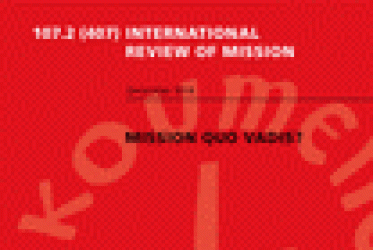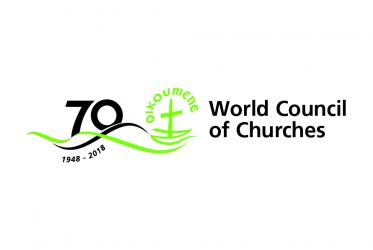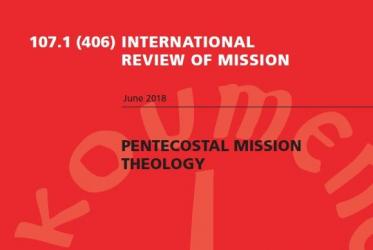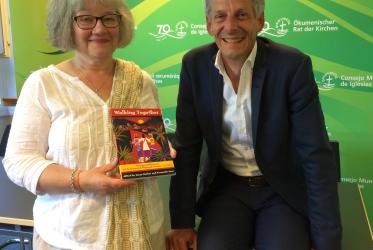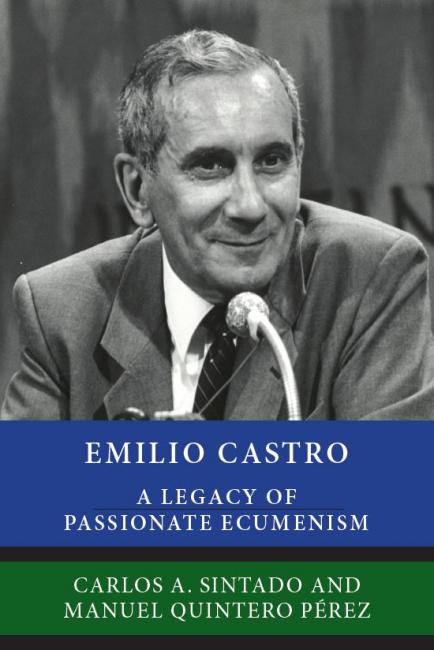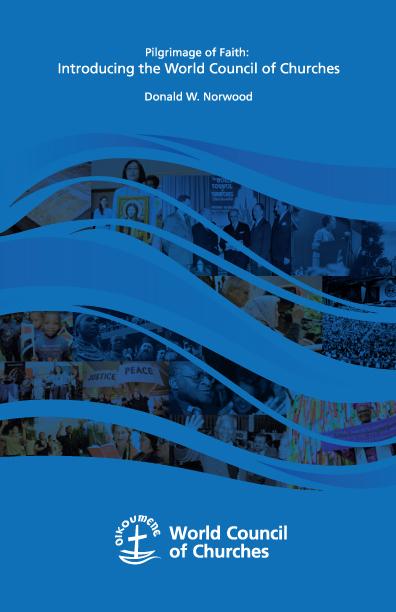Displaying 161 - 180 of 247
Report of the World Council of Churches Conference on World Mission and Evangelism
17 May 2019
Arusha Report
17 May 2019
Latest issue of Current Dialogue tackles diverse themes
28 March 2019
New issue: International Review of Mission
14 December 2018
The American Academy of Religion stimulates WCC publishing plans
28 November 2018
WCC sends warm greetings for Rosh Hashanah
05 September 2018
Emilio Castro: A Legacy of Passionate Ecumenism
28 May 2018
Walking Together
Theological Reflections on the Ecumenical Pilgrimage of Justice and Peace
28 May 2018







